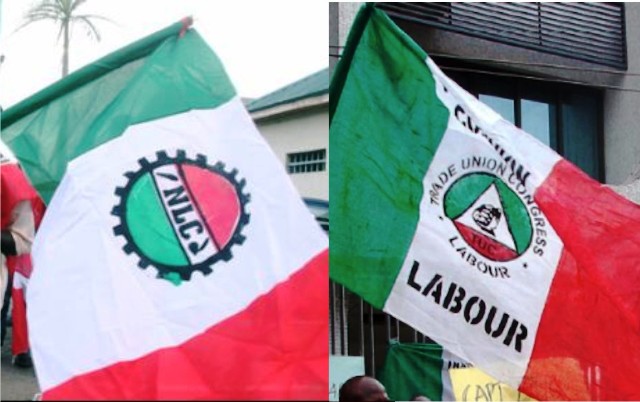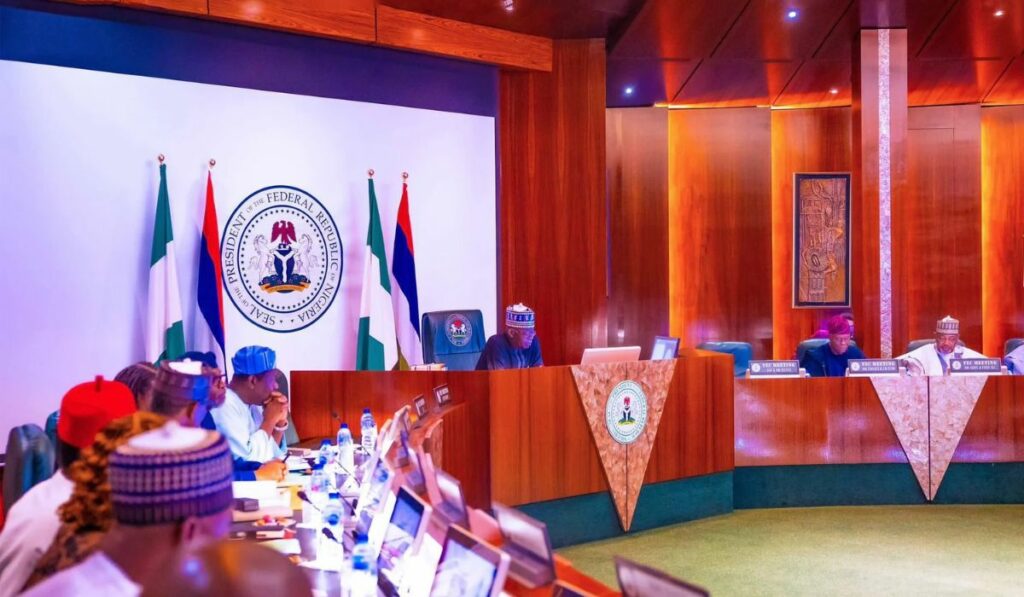Editorial
May Day! May Day!! May Day!!!

Nigerian workers will tomorrow be part of their counterparts worldwide to observe this year’s Workers’ Day popularly called May Day. Workers may also bemoan their deteriorating situations as they mark the 2021 version of the event tomorrow. May Day in Nigeria has constantly been used by the labour movement to spotlight problems that are threatening the industrial peace of the country.
It is a day workers have a good time and interface with their employers in a ceremonial mood. It is a day workers speak up and get answers on issues affecting them, even as the governments are expected to understand them. We join all well-meaning people to congratulate workers all over the world, especially Nigerian workers, on their contributions to humanity.
The most likely applicative issues this year may be the full implementation of the N30,000 minimum wage bill signed into law by President Muhammadu Buhari and the move by the National Assembly, particularly the House of Representatives, to change the minimum wage system in the country.
A bill now under discussion in the House of Representatives suggests a change wherein the country’s 36 states would each set their minimum wage rather than being decided by the Federal Government. Members of the Nigeria Labour Congress (NLC) and the Trade Union Congress (TUC), which constitute millions of workers across most sectors of Nigeria’s economy, filled the streets in Abuja as well as state capitals in protest at the proposed move.
Workers’ role in growing the economy, in addition to life and living as we have come to know it is huge. While the rest of the world may be celebrating that day, we strongly hope that the same will happen in Nigeria in earnest, where workers may have to come to terms with what they are up against. We think that labour may need to be circumspect and raise the mariners’ cry for help to save their straying and sinking ship.
The current state of insecurity in Nigeria has negatively impacted workers and their productivity. The insecurity variables range from theft to organised armed robbery, kidnapping and call for ransom, assassinations, repeated invasions and blockading of business installations, social injustice, lack of access to livelihood, the rising cost of living, and bombings. All these social maladies have made the Nigerian work environment complex.
Since the Covid-19 pandemic heat, the state of affairs of Nigerian workers has got worse. Several jobs were lost due to the pandemic. It is likely to be worsened given the impact the pandemic has had on trade globally. This is besides numerous government pronouncements that certain categories of workers remain at home. All of this means more Nigerians, especially in the lower class, could potentially be compelled to live below the poverty line.
Nobody goes dancing when his house is on fire. More than ever before, labour needs to wake up at least for the suffering families of Nigeria. In 2020, with Covid-19 disrupting everything in the world including relationships, with Nigeria suffering a debt and revenue crisis, the collapse of fiscal buffers, and sheer adversity, the Federal Government decided to pull the plugs. It blamed all of these factors and chose to announce the elimination of fuel subsidy.
The pump price of fuel, benchmarked to the spot price of crude oil in the international market, jumped through the roof and Nigerians groaned. The Federal Government argued that it was not left with any other option. Everyone expected that Organised Labour would intervene. But surprisingly they didn’t quite do so. Groups in civil society had to picket the Abuja headquarters of the NLC for the union to speak up and call the people out on the streets because life had become unbearable for the average Nigerian.
After being nudged, a combined team of the NLC and TUC finally declared that they would call out Labour on strike and shut down the country. They gave the Federal Government stringent conditions: a complete reversal of the hike in fuel price and electricity tariffs. Or else, Nigeria would be shut down indefinitely starting from September 28, 2020.
Labour’s sincerity of purpose was questioned. Nigerians felt they were just playing a game. The biggest tragedy that has befallen Organised Labour in the country is the thinking since 1999, that Labour’s leadership can be used as a stepping stone to a bigger role. Labour leaders use their positions to negotiate big benefits. They mouth revolutionary slogans and parrot aggressive rhetoric which has been confirmed to be a falsehood.
It is sad that since the paltry current minimum wage of N30,000 was signed into law by President Buhari, only a few states have started full implementation even though Nigeria has enough to save and much more for politicians to misappropriate. Added to the hardship faced by the worker, the value of the Naira has dropped beyond redemption and the prices of goods and services skyrocketed yet the survivability of the worker does not appear to matter.
In the private sector, Nigerians are in reality abused and treated as disposables and paid very ridiculous wages. They are disengaged without severance benefits. Some work for as long as 12 hours or more as casuals and Labour does nothing. The workers stand alone without help from any quarters, misunderstood and unsung. In the midst of this oddity, workers lose their voice, they cannot cry; they can neither speak to their employers nor reach their union leaders.
However, civil servants in Rivers State are exhilarated over the resolution of some pending labour concerns such as the full implementation of the minimum wage in the state. Governor Nyesom Wike deserves our commendation for his gesture in that regard. We urge the Beatrice Itubor led Labour to liaise with the government on the quick resolution of other issues recently considered by the tripartite committee.
Though it is inspiring that the governor has promised to look into the workers’ demands, we advise the tripartite committee to expedite action on the remainder of the assignment. Labour’s issues include arrears of minimum wage, promotion of civil servants from 2015, gratuity to pensioners, arrears of salaries to some civil servants who were not paid their February and March 2016 salaries due to the aborted biometric verification exercise of that year, etc.
As workers celebrate their day, Organised Labour in the country should realise that the current labour leadership has completely failed and exposed their gross incompetence and hypocrisy in the way labour matters are dealt with. Their lack of rigour, transparency and intellect provide a strong case for a pressing reform of labour leadership in Nigeria. Therefore, labour must reinvent itself or risk the tragedy of becoming insignificant.
Editorial
Rivers’ Retirees: Matters Arising

Editorial
That FEC’s Decision On Tertiary Institutions

Editorial
Addressing Unruly Behaviours At The Airports

It began as a seemingly minor in- flight disagreement. Comfort Emmason, a passenger on an Ibom Air flight from Uyo to Lagos, reportedly failed to switch off her mobile phone when instructed by the cabin crew. What should have been a routine enforcement of safety regulations spiralled into a physical confrontation, sparking a national debate on the limits of airline authority and the rights of passengers.
The Nigerian Bar Association (NBA) wasted no time in condemning the treatment meted out to Emmason. In a strongly worded statement, the body described the incident as “a flagrant violation of her fundamental human rights” and called for a thorough investigation into the conduct of the airline staff. The NBA stressed that while passengers must adhere to safety rules, such compliance should never be extracted through intimidation, violence, or humiliation.
Following the altercation, Emmason found herself arraigned before a Magistrate’s Court and remanded at Kirikiri Maximum Security Prison, a location more commonly associated with hardened criminals than with errant passengers. In a surprising turn of events, the Federal Government later dropped all charges against her, citing “overriding public interest” and concerns about due process.
Compounding her woes, Ibom Air initially imposed a lifetime ban preventing her from boarding its aircraft. That ban has now been lifted, following mounting public pressure and calls from rights groups for a more measured approach. The reversal has been welcomed by many as a step towards restoring fairness and proportionality in handling such disputes.
While her refusal to comply with crew instructions was undeniably inappropriate, questions linger about whether the punishment fit the offence. Was the swift escalation from verbal reminder to physical ejection a proportionate response, or an abuse of authority? The incident has reignited debate over how airlines balance safety enforcement with respect for passenger rights.
The Tide unequivocally condemns the brutal and degrading treatment the young Nigerian woman received from the airline’s staff. No regulation, however vital, justifies the use of physical force or the public shaming of a passenger. Such behaviour is antithetical to the principles of customer service, human dignity, and the rule of law.
Emmason’s own defiance warrants reproach. Cabin crew instructions, especially during boarding or take-off preparations, are not mere suggestions; they are safety mandates. Reports suggest she may have been unable to comply because of a malfunctioning power button on her device, but even so, she could have communicated this clearly to the crew. Rules exist to safeguard everyone on board, and passengers must treat them with due seriousness.
Nigerians, whether flying domestically or abroad, would do well to internalise the importance of orderliness in public spaces. Adherence to instructions, patience in queues, and courteous engagement with officials are hallmarks of civilised society. Disregard for these norms not only undermines safety but also projects a damaging image of the nation to the wider world.
The Emmason affair is not an isolated case. Former Edo State Governor and current Senator, Adams Oshiomhole, once found himself grounded after arriving late for an Air Peace flight. Witnesses alleged that he assaulted airline staff and ordered the closure of the terminal’s main entrance. This is hardly the conduct expected of a statesman.
More recently, a Nollywood-worthy episode unfolded at Abuja’s Nnamdi Azikiwe International Airport, involving Fuji icon “King”, Wasiu Ayinde Marshal, popularly known as KWAM1. In a viral video, he was seen exchanging heated words with officials after being prevented from boarding an aircraft.
Events took a dangerous turn when the aircraft, moving at near take-off speed, nearly clipped the 68-year-old musician’s head with its wing. Such an occurrence points to a serious breach of airport safety protocols, raising uncomfortable questions about operational discipline at Nigeria’s gateways.
According to accounts circulating online, Wasiu had attempted to board an aircraft while he was carrying an alcoholic drink and refused to relinquish it when challenged. His refusal led to de-boarding, after which the Aviation Minister, Festus Keyamo, imposed a six-month “no-fly” ban, citing “unacceptable” conduct.
It is deeply concerning that individuals of such prominence, including Emmason’s pilot adversary, whose careers have exposed them to some of the most disciplined aviation environments in the world, should exhibit conduct that diminishes the nation’s reputation. True leadership, whether in politics, culture, or professional life, calls for restraint and decorum, all the more when exercised under public scrutiny.
Most egregiously, in Emmason’s case, reports that she was forcibly stripped in public and filmed for online circulation are deeply disturbing. This was an act of humiliation and a gross invasion of privacy, violating her right to dignity and falling short of the standards expected in modern aviation. No person, regardless of the circumstances, should be subjected to such degrading treatment.
Ibom Air must ensure its staff are trained to treat passengers with proper decorum at all times. If Emmason had broken the law, security personnel could have been called in to handle the matter lawfully. Instead, her ordeal turned into a public spectacle. Those responsible for assaulting her should face prosecution, and the airline should be compelled to compensate her. Emmason, for her part, should pursue legal redress to reinforce the principle that justice and civility must prevail in Nigeria’s skies.
-
Sports1 day ago
FIFA rankings: S’Eagles drop Position, remain sixth in Africa
-
Sports1 day ago
NNL abolishes playoffs for NPFL promotion
-
Sports1 day ago
NPFL club name Iorfa new GM
-
Sports1 day ago
CAFCL : Rivers United Arrives DR Congo
-
Sports1 day ago
Kwara Hopeful To Host Confed Cup in Ilorin
-
Sports1 day ago
NSF: Early preparations begin for 2026 National Sports Festival
-
Sports1 day ago
RSG Award Renovation Work At Yakubu Gowon Stadium
-
Sports1 day ago
RSG Pledges To Develop Baseball

